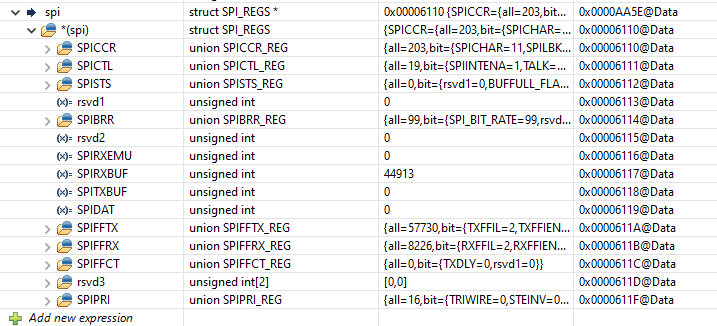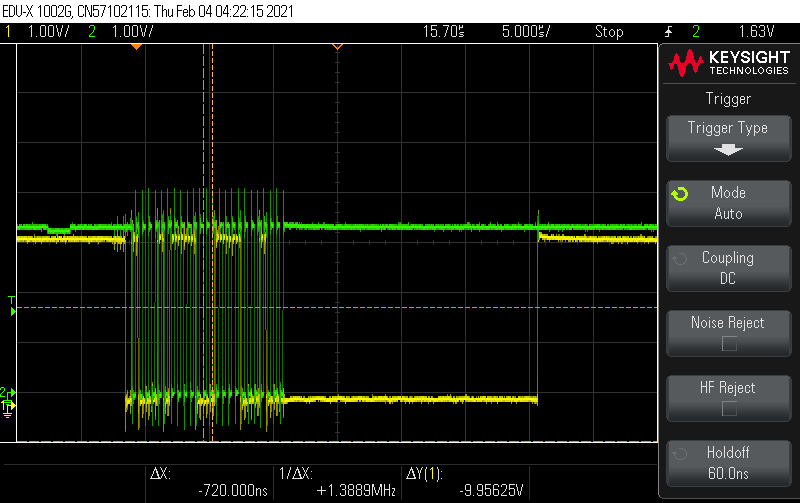Other Parts Discussed in Thread: CONTROLSUITE, C2000WARE, BOOSTXL-POSMGR, TIDM-1010
Pretty much all in the title. I'm using the provided sample code for the position manager in ControlSuite since C2000Ware doesn't have BiSS support yet. I'm using the 379D control card in the provided docking stand with some jumper wires to connect them all together. I'm fairly certain I have it all connected correctly, I have checked this many times.
The CLB portion seems to work correctly, the Start bit is detected, the clock to the encoder is stopped right after the correct number of bits and the clock to the SPI is stopped after 24bits, which is fifo_level(2) * fifo_width(12). However, the "bissc_spiRxFifoIsr" never runs and therefore the main loop is stuck at
while (bissc_data_struct.dataReady != 1) {}
I'm convinced there is some issue in the software or setup of the interrupt but I haven't changed the provided sample code at all so I can't quite figure it out. Is there something specific I should be doing for debugging if I want interrupts to stay active? Perhaps I'm using the incorrect mode which is disabling interrupts? Another piece of information I can provide is when I pause debug at the line where it gets stuck waiting for dataReady, the Rx buffer always has the same value in it even if I rotate the encoder and observe different data on the scope, it always looks like what is seen below, regardless of what data it actually received



